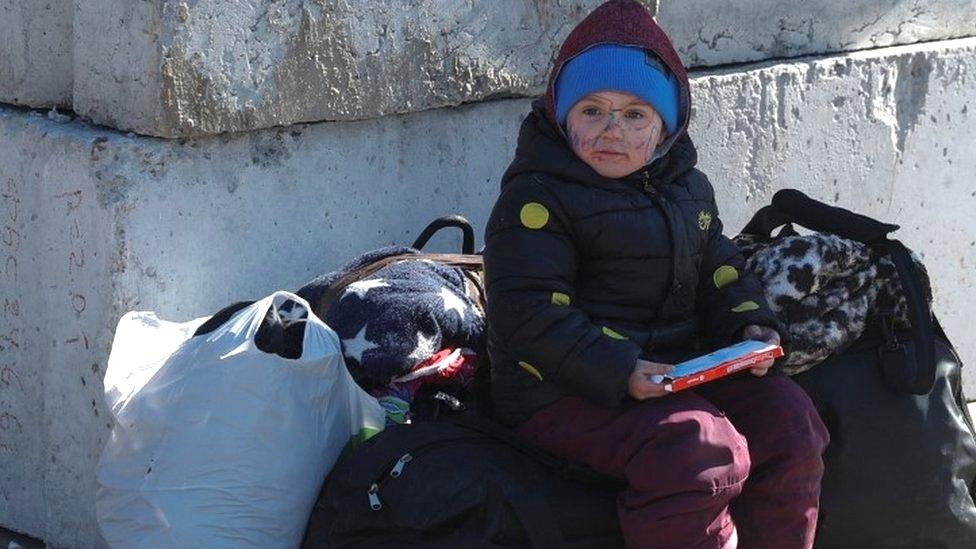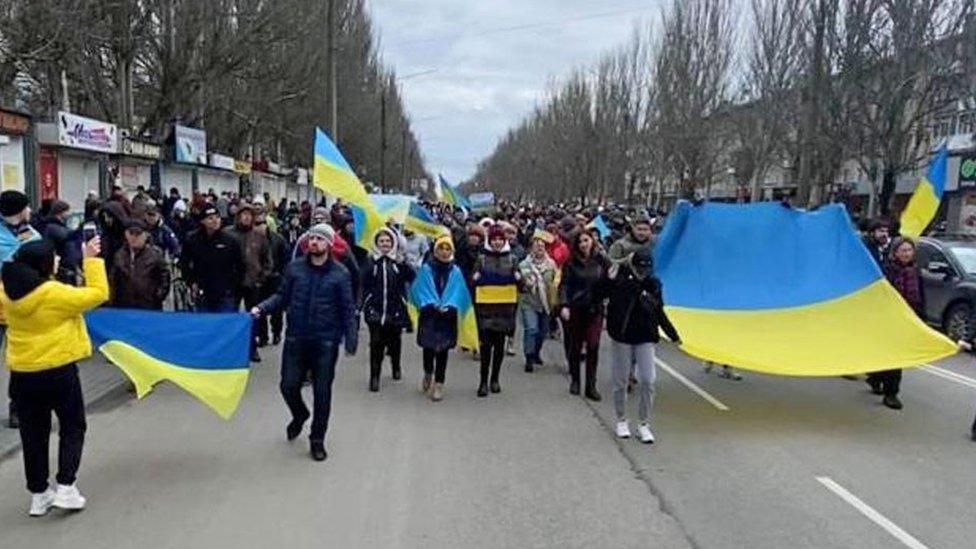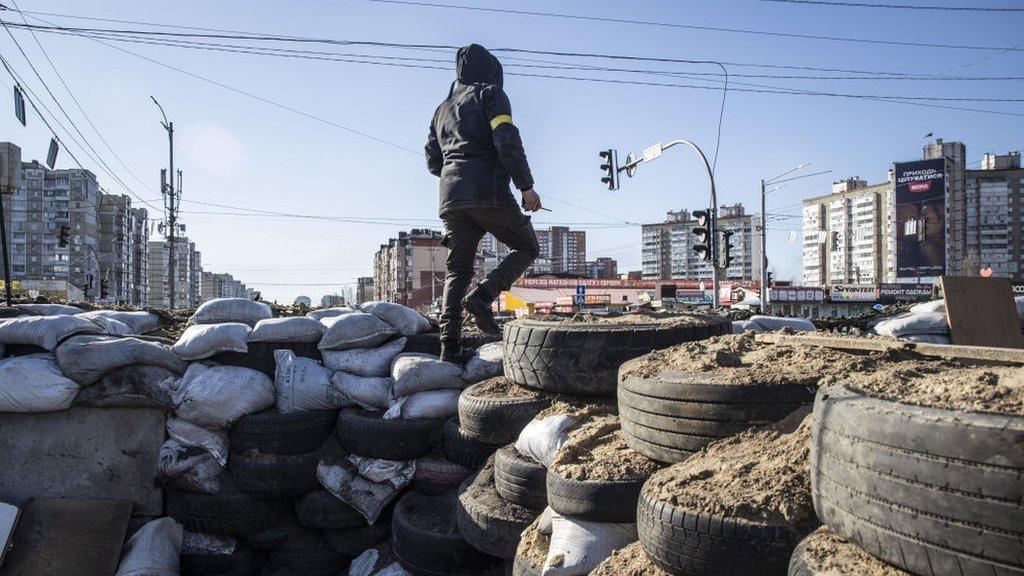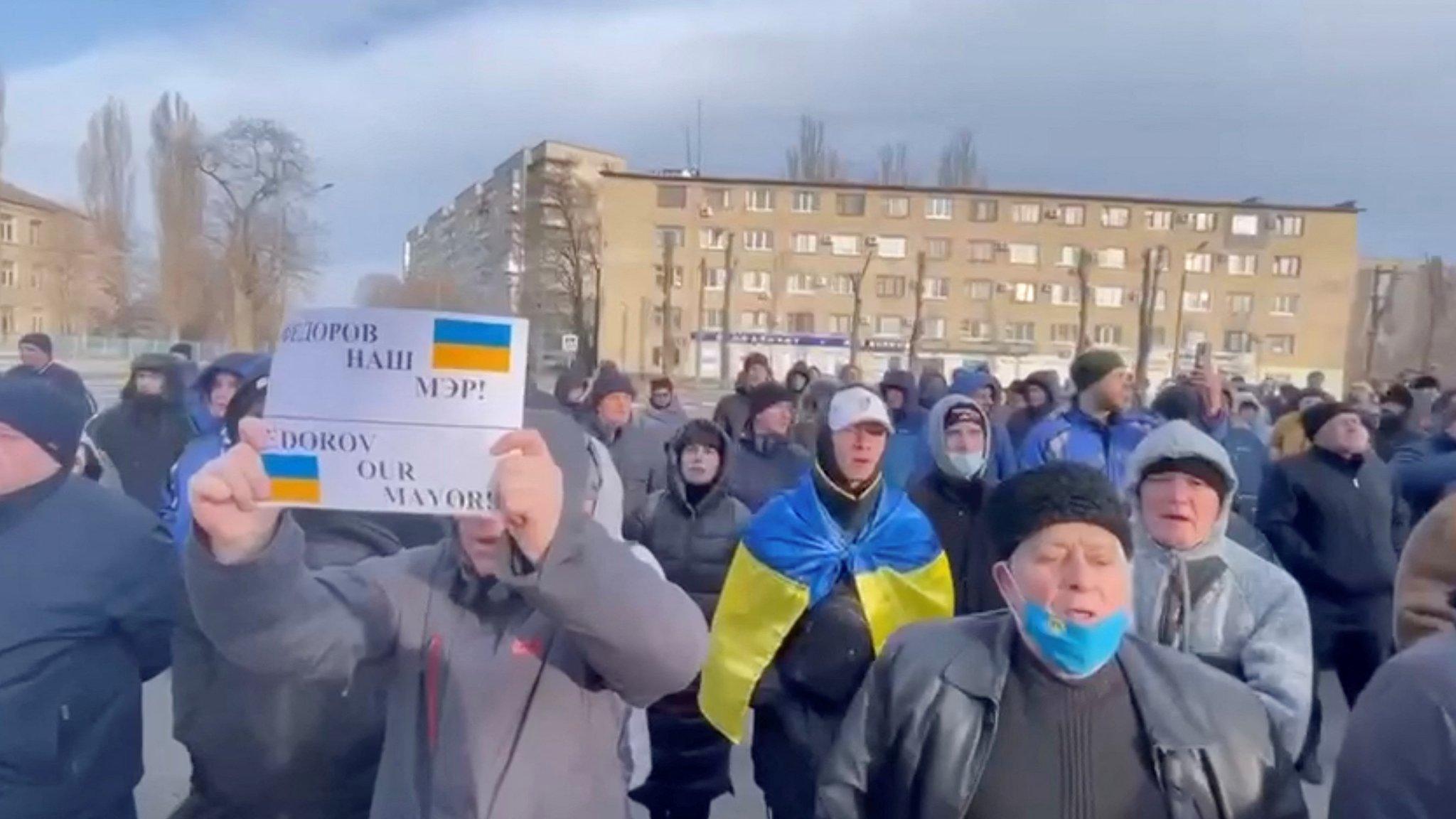Ukraine war: Evacuations 'extremely difficult' amid shelling
- Published

Desperate new attempts to evacuate civilians from towns and villages around Kyiv are under way
Fresh attempts to evacuate civilians from cities under siege in Ukraine are being complicated by constant Russian shelling, Ukrainian officials say.
Humanitarian corridors are being set up from Mariupol, Sumy and towns and villages outside the capital Kyiv.
But Ukraine officials accused Russian forces of firing on a convoy of women and children from Peremoha village, near Kyiv, killing seven.
And the evacuations come as fighting continues around Kyiv and other cities.
"A column of civilians, exclusively women and children, was fired on by the occupiers," a statement by Ukraine's military intelligence service said. "The result of this barbaric act was seven killed, one of whom was a child."
The BBC's Abdujalil Abdurasulov in Irpin, one of the towns outside the capital being evacuated, earlier reported that it was not possible to say that the humanitarian ceasefire was holding because of explosions and artillery fire, including from the Ukrainian side, could still be heard.
Regional officials also said that fighting in the area was continuing and that there was a constant threat of air attacks.
Watch: Abdujalil Abdurasulov is in Irpin, where people are forced to flee via a makeshift river crossing
Ukraine's Deputy Prime Minister Iryna Vereshchuk later said that about 13,000 Ukrainians had been evacuated through humanitarian corridors on Saturday but that no one had managed to leave Mariupol.
The situation in Mariupol is particularly desperate after two weeks of bombardment, the UN has said, with little access to food, water and power.
"Medicines for life-threatening illnesses are quickly running out, hospitals are only partially functioning, and the food and water are in short supply," the Office for the Co-ordination of Humanitarian Affairs said.
Deputy Mayor Serhiy Orlov told the BBC a convoy had left Zaporizhzhya for the city carrying aid and that it included buses for the evacuations.
Previously, he said, convoys were "not let through, they were bombed, the road was mined, there was shelling in the town".
Ukrainian President Volodymyr Zelensky said that about 1,300 of his country's troops had died since the start of the Russian invasion.
Russia invaded Ukraine on 24 February, arguing that it felt threatened by a neighbour intent on joining Western-led organisations such as the Nato military alliance.
The latest key developments:
Clashes outside Kyiv: Intense fighting is raging on the outskirts of the capital as British intelligence says the bulk of Russian forces are within 25km of the centre. Ukrainian officials fear the Russians may be preparing to launch a large-scale assault
Key cities encircled: Sirens and explosions have been heard in many other cities across Ukraine. The besieged cities of Kharkiv, Mariupol, Mykolaiv and Sumy have been enduring relentless shelling as well as freezing temperatures
Fresh air attacks: New artillery and air attacks have also taken place on the cities of Dnipro and Kropyvnytskyi
Arms supply warning: Russia has warned that Western arms convoys delivering weapons to Ukraine could be "legitimate targets" for the Russian armed forces
Fury at mayor's abduction: Hundreds of residents have taken to the streets of the south-eastern city of Melitopol to protest against the abduction of its mayor by Russian forces
New talks: The leaders of France and Germany have been holding another round of phone talks with Russia's President Vladimir Putin
Exodus mounts: The conflict has now sent 2.5 million Ukrainians fleeing to neighbouring countries. Poland says more than 1.6 million people have fled there, while Moldova says it has reached a "breaking point" in its ability to cope with refugees

War in Ukraine: More coverage
MERCENARIES: How Russia is recruiting reinforcements
HERITAGE: Lviv hides its priceless artefacts
IN DEPTH: Full coverage of the conflict

Related topics
- Published9 March 2022

- Published11 March 2022

- Published12 March 2022
